When Stern senior Ari Spitzer moved into his apartment in June, he wanted to install an AC unit in his window facing First Avenue. “You shouldn’t put it there because of the fire escape,” his mom warned him.
“Who cares?” he responded.
Four months later, Spitzer clambered out that very window, wheezing and watery-eyed, leaned over the railing of the fire escape and shouted for help.
On Wednesday, Oct. 3, around 1:45 a.m., a kitchen fire from Japanese restaurant Uogashi ignited the bottom floor of 188 First Ave. — the building where Spitzer lives.
The six-alarm fire consumed the first three floors of the five-story prewar walkup and raged until midday.
Spitzer was fast asleep when the fire started. He woke to an alarm, and his first instinct was to hit the snooze button. But this alarm sounded different — it wasn’t a default iPhone alarm, but rather a wailing mixture of sirens and a fire alarm. He opened his eyes to find red, white and blue lights dancing on his ceiling and bouncing around his room.
“I was very disoriented,” Spitzer said.
“It was a very slow realization of ‘Sh-t, I actually can’t go back to sleep right now — something bad is happening.’”
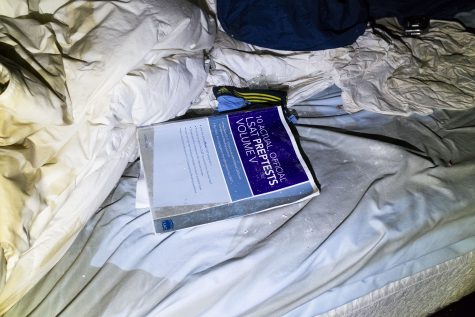
His mind racing, Spitzer launched into survival mode, his feet carrying him to the first exit he could think of: his front door. But when he opened it, he was hit by a wall of smoke, which instantly burned his nose, throat and eyes.
Standing in his doorway, enveloped by smoke, Spitzer felt blind. Something was making the clouded hallway glow, but despite the light, he could barely make out the stairwell. “All I saw was pitch white,” he said. “I don’t know if it was a firefighter’s flashlight or if it was a fire or an emergency light — I don’t know what it was, but there was just thick smoke.”
Spitzer retreated back into his apartment, making sure to close the door behind him. There was no chance he was exiting via the main stairwell. “I’m on the fourth floor — I couldn’t go down all those stairs,” Spitzer said. “I didn’t know if there was a fire on the bottom — I didn’t know what was going on, so that was a no-go.”
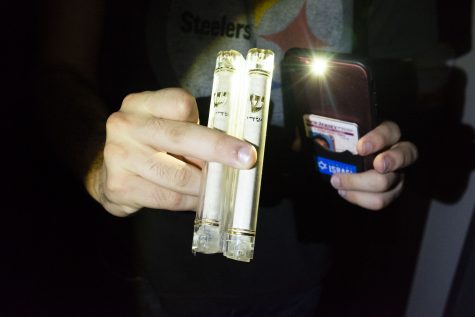
His apartment, now hazy from opening the door, and his heart beating out of his chest, Spitzer rushed to his bedroom, where there was access to a fire escape. Without hesitation, he grabbed his keys and phone from the desk by his bed, slipped on his Adidas slides and turned his back on the apartment he’d called home since June.
“I opened the window, I kicked out the screen and I screamed.”
Leaning over the railing of the fire escape, wearing only the T-shirt and shorts he slept in, Spitzer yelled into the endless smoke. “I could almost see shadows below with flashlights, so I kept yelling until one of the firefighters heard me,” Spitzer said. “It felt longer than it was, but one of them heard me and shined a light onto where I was.”
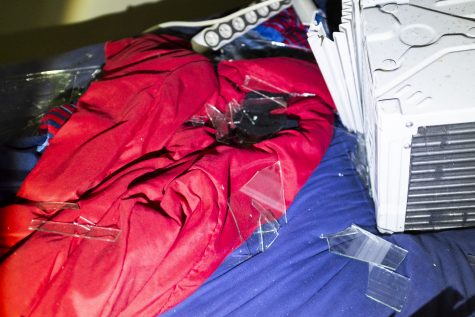
Once the firefighters spotted Spitzer, they collectively shined their flashlights up, illuminating the path of the fire escape as he carefully descended. When he safely reached the ground — less than five minutes after waking up — he was immediately ushered to an ambulance, where he was given oxygen, information on the situation and time to call his parents and roommate, who was out of town.
His roommate, Moshe Schwartz, a senior at Baruch College, didn’t catch Spitzer’s early morning call. “Ari had texted me, kind of informing me in a kind of funny way,” Schwartz said. “He was like, ‘Hey, the apartment burned down. We won’t be able to go back for a few hours, just wanted to let you know.’ I woke up at 7 a.m. to this text message and I’m like, ‘Wait, what?’”
Later, Spitzer learned that he was one of the last people to evacuate from the building — he had slept through nearly 30 minutes of the blaring fire alarm and sirens. There are only eight units in his apartment building, so Spitzer believes all the other tenants woke up early enough to evacuate down the main stairs.
“The firefighters, I saw them the next morning, and they were like, ‘Oh, wait, you’re the fire escape guy,’” Spitzer said.
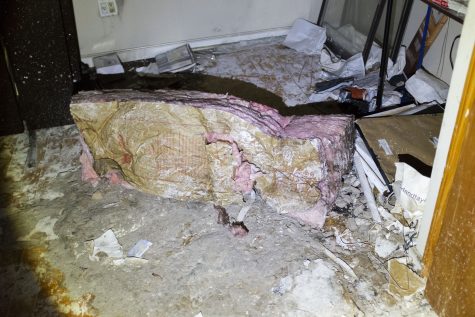
Because of how long Spitzer was exposed to the smoke, he was taken to the Mount Sinai Beth Israel hospital, five blocks north of the apartment. They conducted several tests, including a blood test and chest x-ray, all of which came back looking good. He was discharged around 4:30 a.m.
While Spitzer was at the hospital, his mother drove into the city from their home in New Jersey. With her, she brought a suitcase full of clothes and necessities Spitzer could use for the next few days. Together, they walked back to the apartment from the hospital, expecting the fire to be extinguished. However, there were even more fire trucks scattered along First Avenue than before. The fire raged well into the afternoon.
In the meantime, Spitzer rested at a nearby friend’s place before diving back into his jam-packed schedule — although he did decide to skip his morning Texts and Ideas class.
“I had a big interview that day,” said Spitzer, who’s in the middle of finance job recruitment. “I didn’t have any of my clothes, I didn’t have my computer — I didn’t even have a folder with my resumes in it. I had nothing. I had my health, and that was the most important.”
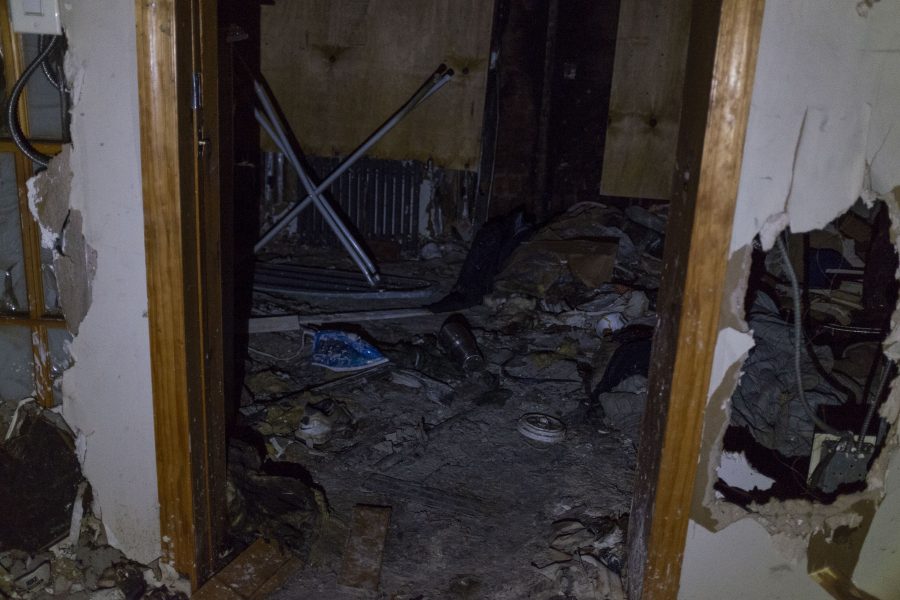
Every time Spitzer and his roommate return to the building to pick up belongings, they are struck by how much damage the fire caused. “The minute you walk into the building, it’s like walking into an abandoned building, like in the movies,” Schwartz said. “You walk up the stairs and look into the first apartment, and it’s just burnt to a crisp.”
The entire building still smells strongly of smoke, which now brings back harrowing memories for Spitzer. “Reliving it is scary,” he said. “It was a near-death experience and it hasn’t even hit me yet. I’m so busy [with] recruiting that I don’t have time to actually digest what’s going on.”
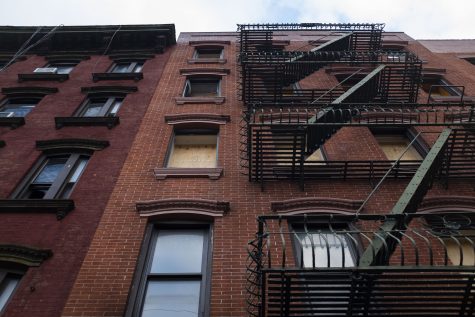
Although Spitzer is still overwhelmed by the situation, he is taking it day by day. Right now, he is focused on staying on top of his recruitment schedule and figuring out housing. He has been staying at a friend’s apartment since the fire, but over the weekend, Spitzer went apartment hunting with his parents. He has plans to stay in a hotel this coming week until he and his roommate find a new place. He is also looking into NYU housing as a potential alternative.
Moving forward, Spitzer is committed to regarding safety regulations with more seriousness. Although they didn’t end up putting the AC unit in that window, due to fire safety regulations, this moment will forever be seared in Spitzer’s mind. “That annoying regulation, which made the room decorations not exactly what I wanted, it saved my life.”
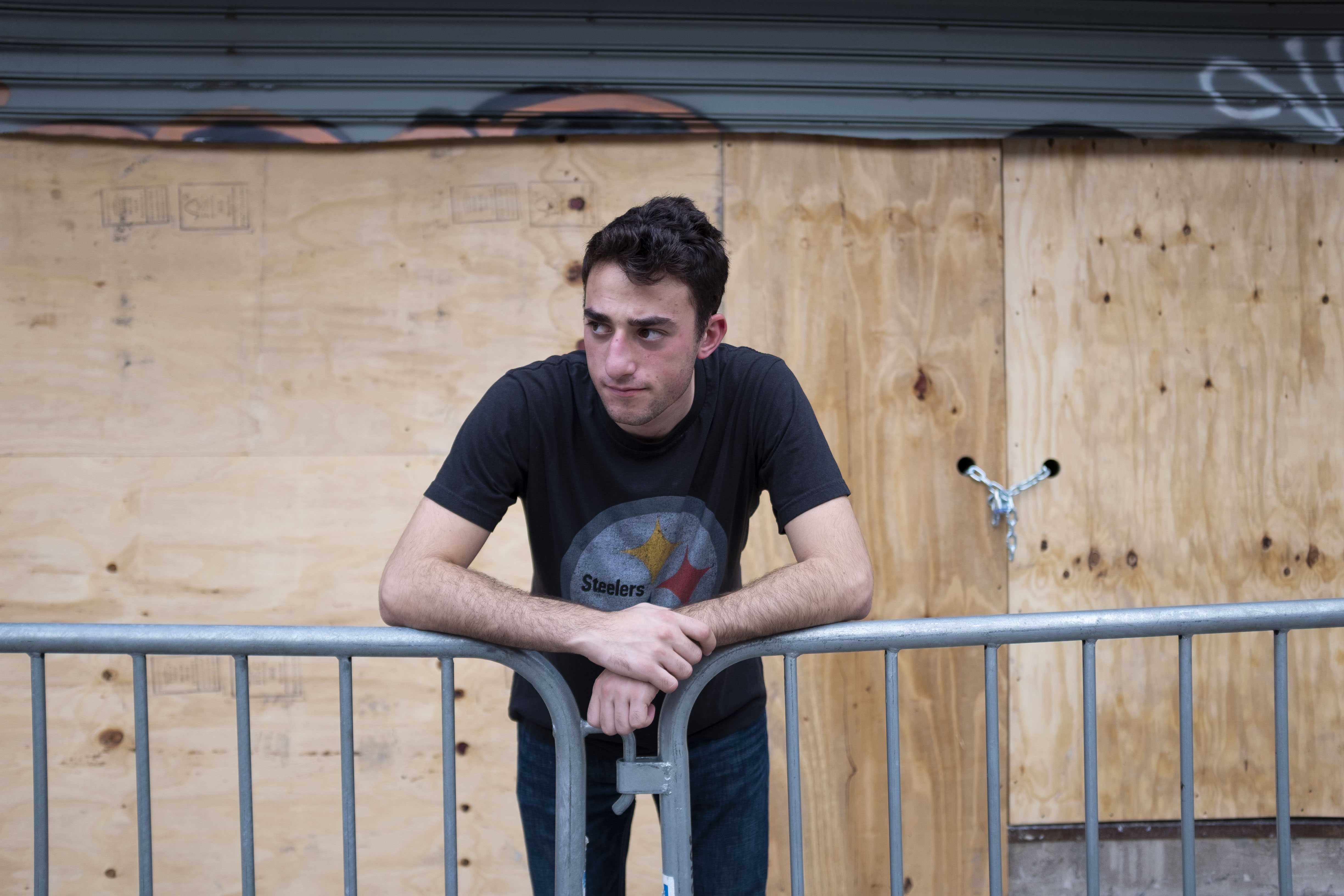
However, Spitzer is most thankful to the firefighters and police officers that responded to the fire and put their lives in danger to extinguish it. Of the 14 people injured during the fire, 11 of them were firefighters. In order to show his gratitude, Spitzer has created a Facebook birthday fundraiser for the New York City Fire Department Foundation.
“You kind of think, ‘Yeah, firemen, police, they’re important, we need them, but I’ll never need them,’” Spitzer said. “It’s very sobering to have been in that position to have been helped by the hard efforts of so many people.”
A version of this article appeared in the Tuesday, Oct. 9 print version. Email Natalie Chinn at [email protected].






















































































































































